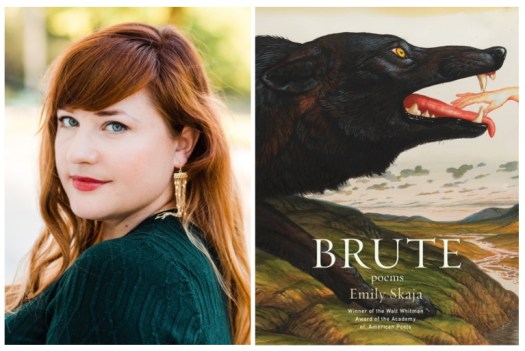
A new episode of the New Books in Poetry podcast is up. I had a delightful conversation with Emily Skaja about her new book BRUTE (Graywolf Press, 2019).
Winner of the Walt Whitman Award, Emily Skaja’s BRUTE (Graywolf Press, 2019) is a stunning collection of poetry that navigates the dark corridors of trauma found at the end of an abusive relationship. “Everyone if we’re going to talk about love please we have to talk about violence,†writes Skaja in the poem “remarkable the litter of birds.†She indeed talks about the intersections of both love and violence, evoking a range of emotional experiences ranging from sorrow and loss to rage, guilt, hope, self discovery, and reinvention. These poems reflect the present moment — ripe with cell phones, social media, and technologies that shift the way humans interact with each other — while maintaining a mythic quality, with the speaker feeling like a character struggling to survive in a surreal fairytale world.
Skaja recommends: Spinning Silver by Naomi Novik, My Dark Vanessa by Kate Russel, Long Live the Tribe of Fatherless Girls by T Kira Madden, and Sabrina & Corina: Stories by Kali Fajardo-Anstine.
You can listen to the interview here or on the podcast app of your choice.
You can join New Books in Poetry in a discussion of this episode on Shuffle by joining here.
Subscribe to My Newsletter | Twitter | Instagram | Shuffle




